题目内容
I entered high school having read hundreds of books. But I was not a good reader. Merely bookish, I lacked a point of view when I read. Rather, I read in order to get a point of view. I searched books for good expressions and sayings, pieces of information, ideas, themes—anything to enrich my thought and make me feel educated. When one of my teachers suggested to his sleepy tenth-grade English class that a person could not have a "complicated idea" until he had read at least two thousand books, I heard the words without recognizing either its irony (嘲讽) or its very complicated truth. I merely determined to make a list of all the books I had ever read. Strict with myself, I included only once a title I might have read several times. (How, after all, could one read a book more than once?) And I included only those books over a hundred pages in length. (Could anything shorter be a book?)
There was yet another high school list I made. One day I came across a newspaper article about an English professor at a nearby state college. The article had a list of the "hundred most important books of Western Civilization." "More than anything else in my life," the professor told the reporter with finality , " these books have made me all that I am ." That was the kind of words I couldn’t ignore. I kept the list for the several months it took me to read all of the titles. Most books, of course, I hardly understood. While reading Plato's The Republic, for example, I needed to keep looking at the introduction of the book to remind myself what the text was about. However, with the special patience and superstition (迷信) of a schoolboy, I looked at every word of the text. And by the time I reached the last word, pleased, I persuaded myself that I had read The Republic, and seriously crossed Plato off my list
- 1.
Which of the following is TRUE according to the passage?
- A.The writer thought it was impossible for one to read two thousand books
- B.While at high school, the writer had plans for reading
- C.The writer only read books no more than 100 pages
- D.The writer thought the teacher was not being serious about the suggestion of reading
- A.
- 2.
The underlined phrase "with finality" most probably means _______.
- A.firmly
- B.immediately
- C.simply
- D.pleasantly
- A.
- 3.
The writer's purpose in mentioning The Republic is to_______.
- A.explain why it was included in the list
- B.describe why he seriously crossed it off the list
- C.show that he read the books blindly though they were hard to understand
- D.prove that he understood most of it because he had looked at every word
- A.
- 4.
The writer provides two book lists to _______.
- A.show how he developed his point of view
- B.tell his reading experience at high school
- C.introduce the two persons' reading methods
- D.explain that he read many books at high school
- A.
试题分析:作者举出了两个读书清单讲述了两个在高中读书的经历。一个是自己列出的100个读书清单,一个是根据英语教授的推荐列了自己要读的书单,制定了读书计划。是为了支撑他整篇文章的主题:他在中学的时候是如何读书的,而并不是他如何形成自己的观点、介绍两个读书方法、解释他在中学的时候读过很多书。
1.推断题。根据第二段“That was the kind of words I couldn’t ignore (忽视).I kept the list for the several months it took me to read all of the titles.”可知作者在高中根据英语教授的推荐列了自己要读的书单,制定了读书计划。选B。
2.词义猜测题。根据教授的话“these books have made me all that I am.”可知他对于推荐的书是很推崇的,所以他的推荐是坚决的。选A。
3.推理题。根据最后一段“Most books,of course,I hardly understood.While reading Plato’s The Republic,for example,”可知作者提到The Republic是为了作为一个例子说明作者的书单里面很多书看不懂。选C。
4.归纳题。作者举出了两个读书清单讲述了两个在高中读书的经历。选B。
考点:考查故事类短文

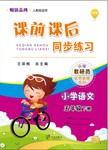 课前课后同步练习系列答案
课前课后同步练习系列答案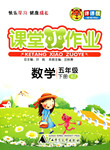 课堂小作业系列答案
课堂小作业系列答案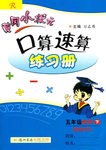 黄冈小状元口算速算练习册系列答案
黄冈小状元口算速算练习册系列答案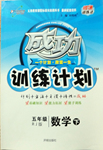 成功训练计划系列答案
成功训练计划系列答案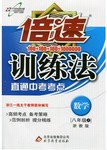 倍速训练法直通中考考点系列答案
倍速训练法直通中考考点系列答案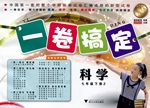 一卷搞定系列答案
一卷搞定系列答案One morning more than thirty years ago, I entered the Track Kitchen, a restaurant where everyone from the humblest(卑微的) to the most powerful came for breakfast. I noticed an empty chair next to an elderly, unshaven man, who looked somewhat disheveled. He was wearing a worn-out hat and was alone. I asked if I might join him. He agreed quietly and I sat down to have my breakfast.
We cautiously began a conversation and spoke about a wide rang of things. We never introduced ourselves. I was concerned that he might have no money and not be able to afford something to eat. So as I rose to go back to the counter and buy a second cup of coffee, I asked,
“My I get you something?”
“A coffee would be nice.”
Then I bought him a cup of coffee, we talked more, and he accepted another cup of coffee. Finally, I rose to leave, wished him well, and headed for the exit. At the door I met one of my friends. He asked,
“How did you get to know Mr. Galbreath?”
“Who?”
“The man you were sitting with. He is chairman of the Board of Churchill Downs.”
I could hardly believe it. I was buying, offering a free breakfast, and feeling pity for one of the world’s richest and most powerful men!
My few minutes with Mr. Galbreath changed my life. Now I try to treat everyone with
respect, no matter who I think they are, and no matter another human being with kindness and sincerity.
1. What does the underlined word “disheveled” mean?
|
A.Unfriendly. |
B.Kind. |
C.Elegant. |
D.Untidy. |
2.The author bought coffee for the old man because .
|
A.he wanted to start a conversation |
B.he thought the old man was poor |
|
C.he intended to show his politeness |
D.he would like to thank the old man |
3.How did the author probably feel after he talked with his friend?
|
A.Surprised. |
B.Pitiful. |
C.Proud. |
D.Regretful. |
4. What is the message mainly expressed in the story?
|
A.We should learn to be generous. |
|
B.It is honorable to help those in need. |
|
C.We should avoid judging people by their appearances. |
|
D.People in high positions are not like what we expect. |